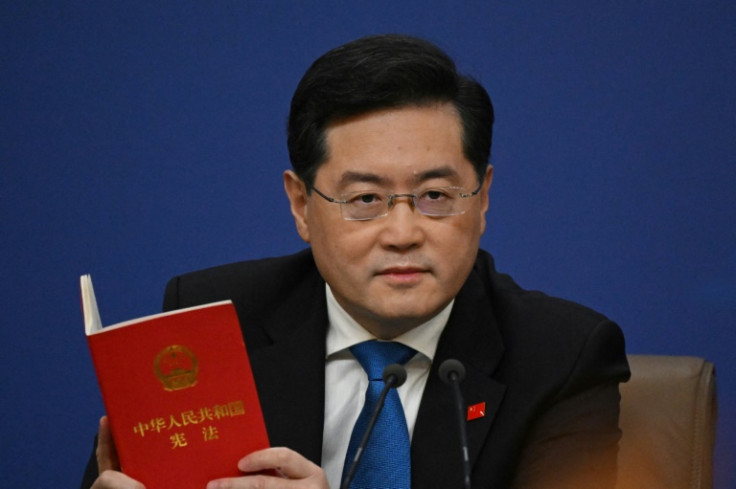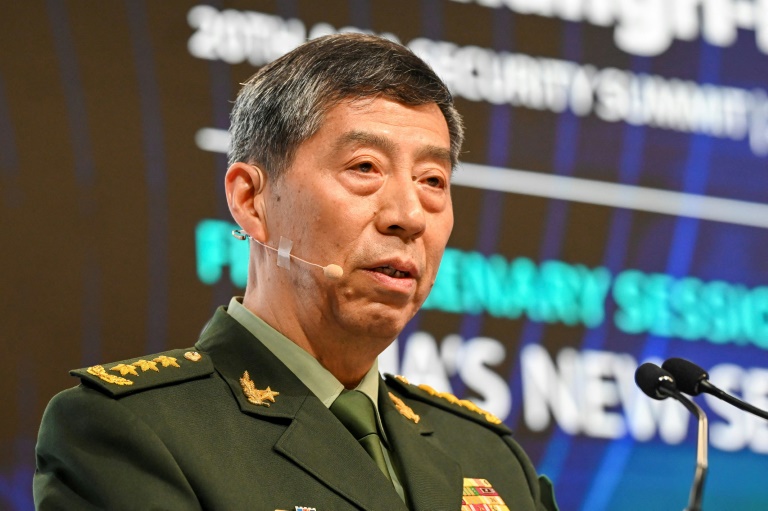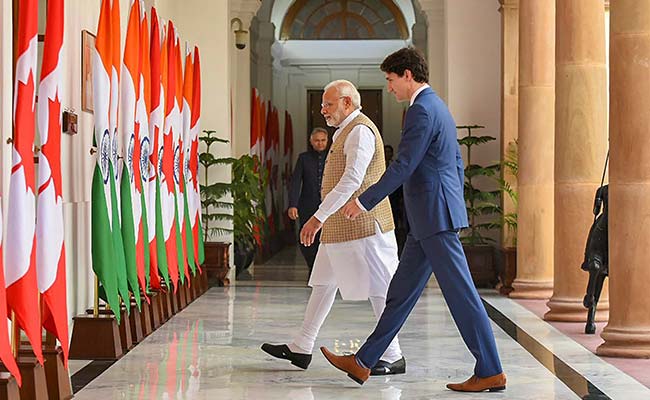The sacking of a top diplomat and mysterious disappearance of a defence minister have raised fresh questions around President Xi Jinping’s increasingly opaque decision-making, experts say.
US officials believe defence minister Li Shangfu is under investigation and has been relieved of his duties just six months after his appointment, the Financial Times reported last week.
In July, foreign minister Qin Gang — long seen as a close ally of Xi’s — was removed from office without explanation.
Later that month China announced that former navy commander Wang Houbin would take over as the new head of the Chinese military’s Rocket Force, as media reports emerged of a corruption probe.
Wang’s predecessor Li Yuchao had not been seen in weeks, and state media offered no explanation for his removal.
“As Shakespeare wrote in Hamlet, ‘Something is rotten in the state of Denmark’,” US Ambassador to Japan Rahm Emanuel said on X last week, adding that defence minister Li “hasn’t been seen or heard from” in weeks.
“President Xi’s cabinet lineup is now resembling Agatha Christie’s novel And Then There Were None. First, Foreign Minister Qin Gang goes missing, then the Rocket Force commanders go missing, and now Defense Minister Li Shangfu hasn’t been seen in public for two weeks,” Emanuel wrote in a separate post.
Sun Yun, senior fellow and director of the China Program at the Stimson Center in Washington, told AFP: “It does say a lot about the unpredictability of China’s personnel decisions and domestic politics today.”
Since rising to the top of the Communist Party in 2012, Xi has consolidated control within the government and is believed to have promoted close political allies to the country’s top posts.
“If it turns out Li is also demoted, it would not be a positive image for Xi,” Sun said.
“Both Qin and Li were selected by him.”
Fighting alleged corruption has long been a central theme of Xi’s rule, with the Chinese leader waging a sweeping campaign since taking office that critics claim helps him purge political rivals.
“Xi Jinping began purging top personnel in the military and security forces very early in his time in power, and has continued to do so through to the present,” Sheena Chestnut Greitens, an expert on authoritarian politics in East Asia who teaches at the University of Texas at Austin, told AFP.
The Chinese leader views corruption as a “fundamental threat”, she said, “because it makes people loyal to personal profits, rather than to the Party”.
But while early corruption probes targeted officials seen as a challenge to Xi’s rule — populist upstarts or allies of ex-leaders, for example — recent investigations appear to be hitting closer to home.
Both Qin and Li are believed to have been handpicked personally by Xi for their roles as ministers of foreign affairs and defence, said Chestnut Greitens.
“For them to be removed so quickly does raise questions about what information Xi is and is not getting when he selects people,” she said, as well as “what’s happening to cause them to be removed so quickly”.
“Interlocutors have to wonder if the person they’re dealing with has any power and clout back in Beijing, or will disappear tomorrow and be incommunicado for months.”
The possible removal of Li Shangfu and unexplained sacking of Li Yuchao appear to indicate the campaign extends into the upper echelons of the world’s largest military force.
Lyle Morris, a senior fellow for foreign policy and national security at the Asia Society Policy Institute, wrote that Li Shangfu’s disappearance “suggests Xi’s anti-corruption campaign in the PLA (is) nowhere near done”, referring to the People’s Liberation Army.
“He’s not some obscure official that can be swept under the rug,” Morris wrote on X.
China is yet to confirm that any of the men are under investigation — and has rebuffed repeated questions about their whereabouts.
Asked this week about Wall Street Journal reports that foreign minister Qin’s removal was tied to an alleged extra-marital affair, foreign ministry spokeswoman Mao Ning said Beijing had “already released information about the appointment and removal”.
“I am not aware of the other situation you mentioned,” she said.
But the lack of official explanations on the status of the officials has fanned speculation about the inner workings of the world’s second-largest economy.
“That heightens the sense of unpredictability around Chinese foreign policy, at a time when China’s political system is already less transparent and harder for outsiders to understand,” said Chestnut Greitens.
AFP

AFP






